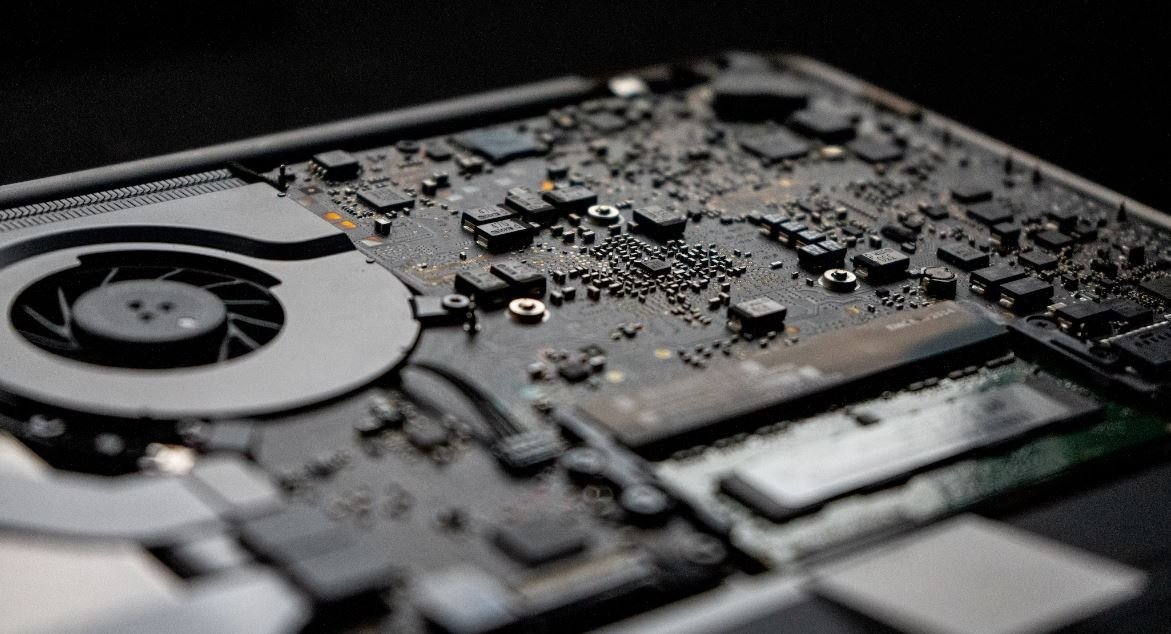Solar City in Dubai
Dubai is known for its iconic skyscrapers, extravagant lifestyle, and its vision for the future. One of the most remarkable projects in Dubai is the creation of a solar city, a sustainable and environmentally friendly urban development that aims to harness the power of the sun as a primary source of energy.
Key Takeaways
- Dubai is creating a solar city to promote sustainability and reduce reliance on fossil fuels.
- The solar city will feature advanced technology and innovative infrastructure.
- It aims to set an example for other cities around the world to follow.
The solar city project in Dubai is an ambitious endeavor that showcases the city’s commitment to sustainable development. With its year-round sun and plenty of available land, Dubai is well-suited to harness the power of solar energy. The solar city will consist of various residential, commercial, and industrial zones, all powered entirely by solar energy. By utilizing renewable energy sources, Dubai aims to reduce its carbon footprint and implement eco-friendly practices in all aspects of urban living.
In terms of infrastructure, the solar city will incorporate advanced technology and smart grid systems. These systems will enable efficient energy distribution, monitor energy consumption, and optimize energy usage throughout the city. This integrated approach aims to maximize energy generation and minimize waste. With its smart infrastructure, the solar city in Dubai will serve as a model for future sustainable urban developments worldwide.
*Dubai’s commitment to sustainability has already yielded successful projects such as the world’s largest solar park, the Mohammed bin Rashid Al Maktoum Solar Park. This park has a capacity of 5,000 megawatts by 2030 and plays a crucial role in Dubai’s transition to clean energy.
Advantages of Solar City
- Reduces dependency on fossil fuels.
- Promotes clean and renewable energy sources.
- Creates job opportunities in the renewable energy sector.
In addition to reducing carbon emissions and promoting sustainability, the solar city project will provide significant advantages to Dubai and its residents. By relying on solar power, the city can reduce its dependency on fossil fuels, which are finite and contribute to climate change. Emphasizing clean and renewable energy sources helps create a greener future for the city and ensures the preservation of the environment for future generations.
*Moreover, the solar city project will facilitate job creation in the renewable energy sector. With the demand for solar power increasing, new job opportunities will emerge in solar panel installation, maintenance, and research and development of solar technologies.
Solar City Infrastructure
| Infrastructure Component | Description |
|---|---|
| Smart Grid Systems | A system that integrates renewable energy sources, smart meters, and advanced analytics to optimize energy distribution and reduce wastage. |
| Solar Panels | Photovoltaic panels that convert sunlight into electricity to power residential, commercial, and industrial zones. |
The solar city project will rely on various infrastructure components to ensure the effective utilization of solar energy. One crucial element is the implementation of smart grid systems. These systems integrate renewable energy sources, smart meters, and advanced analytics to optimize energy distribution and reduce wastage. By intelligently managing energy consumption, the solar city can minimize energy loss and ensure maximum efficiency.
*Solar panels will be installed throughout the city to capture sunlight and convert it into electricity. These photovoltaic panels play a pivotal role in ensuring a sustainable energy supply. As the sun shines abundantly in Dubai, the city’s solar panels will have ample opportunity to generate clean energy for its residents and businesses.
Investment and Future Outlook
- The solar city project requires substantial financial investment.
- Dubai’s commitment to sustainability positions it as a global leader in renewable energy.
- The solar city serves as a catalyst for worldwide adoption of sustainable practices.
Developing a solar city of this magnitude requires substantial financial investment. However, Dubai’s commitment to sustainability and its determination to reduce reliance on fossil fuels make it a worthy endeavor. By creating a solar city, Dubai showcases its dedication to a greener future and positions itself as a global leader in renewable energy.
*The successful completion of the solar city project in Dubai will serve as a global benchmark for sustainable urban development. By establishing an environmentally friendly and energy-efficient city, Dubai inspires other cities worldwide to adopt similar practices and reduce their carbon footprint. The solar city acts as a catalyst for the worldwide adoption of sustainable practices, promoting a more sustainable and livable future for all.
Conclusion
In summary, Dubai’s solar city project exemplifies the city’s commitment to sustainability and innovative urban development. By harnessing the power of solar energy, Dubai not only reduces reliance on fossil fuels but also sets an example for cities worldwide to follow. With advanced technology, smart infrastructure, and job creation opportunities, the solar city project in Dubai paves the way for a more sustainable future.

Common Misconceptions
Misconception 1: Solar City in Dubai is all about luxury and extravagance
One common misconception about Solar City in Dubai is that it is exclusively designed for luxury and extravagance. People often believe that it caters only to the super-rich, offering opulent amenities and exorbitant prices. However, this is not entirely true. Solar City in Dubai aims to be a sustainable and environmentally friendly residential hub that is accessible to everyone, promoting a greener lifestyle for all residents.
- The vision of Solar City in Dubai is to offer affordable and efficient solar-powered housing options.
- It provides a range of housing choices, including low-cost apartments, for people belonging to different income groups.
- Solar City in Dubai focuses on reducing the ecological footprint of its residents, rather than emphasizing luxury.
Misconception 2: Solar City in Dubai is dependent on sunlight for all its energy needs
Another misconception surrounding Solar City in Dubai is that it relies solely on sunlight to meet its energy requirements. While solar power is an essential component of this sustainable city, it is not the only source of energy. Solar City in Dubai incorporates a mix of renewable energy sources, ensuring a reliable and consistent energy supply to its residents.
- In addition to solar panels, Solar City in Dubai integrates wind turbines to harness wind power.
- Batteries are used to store excess energy generated during daylight hours for use during the night or cloudy days.
- The city also employs grid connections to ensure a stable supply of electricity when renewable sources are insufficient.
Misconception 3: Solar City in Dubai is a lonely desert with limited resources
Many people mistakenly believe that Solar City in Dubai is nothing more than a lonely desert with limited resources and amenities. However, this is far from the reality. The city is carefully planned and equipped with all essential facilities and infrastructure to provide a comfortable and convenient living experience for its residents.
- Solar City in Dubai features parks, green spaces, and recreational facilities to create a sustainable and well-balanced living environment.
- It has schools, hospitals, shopping centers, and other amenities to cater to the needs of its residents.
- The city adopts innovative water management systems to ensure efficient water use in the arid desert environment.
Misconception 4: Solar City in Dubai is an impractical idea that cannot be implemented
Some skeptics believe that Solar City in Dubai is simply an impractical idea that cannot be effectively implemented. They argue that the costs associated with building and maintaining a sustainable city in the desert are too high to justify the benefits. However, Dubai has already made significant progress in this regard, and the city’s commitment to ambitious sustainability goals proves otherwise.
- Dubai has successfully implemented several large-scale renewable energy projects, including the construction of the world’s largest solar park.
- The city has the necessary resources and expertise to overcome technical and logistical challenges in establishing a sustainable city.
- Solar City in Dubai aligns with the government’s vision and commitment to promoting renewable energy and sustainable development.
Misconception 5: Solar City in Dubai is an isolated initiative with no global significance
Some people mistakenly assume that Solar City in Dubai is an isolated initiative with no global significance, limited to the boundaries of the city itself. However, the impact of Solar City in Dubai extends beyond its local context and serves as a model for sustainable urban development around the world.
- The innovative practices and technologies implemented in Solar City in Dubai can inspire and guide other cities in their own sustainability efforts.
- Dubai’s commitment to renewable energy and sustainability contributes to global efforts in combating climate change and reducing carbon emissions.
- The success of Solar City in Dubai showcases the potential for sustainable urban planning in even the most challenging environments.

Solar Power Consumption by Country
Solar power is becoming increasingly popular around the world, as countries strive to adopt renewable and sustainable energy sources. This table showcases the top 10 countries with the highest solar power consumption in gigawatt-hours (GWh) in 2020.
| Country | Solar Power Consumption (GWh) |
|---|---|
| China | 323,967 |
| United States | 84,974 |
| India | 43,990 |
| Japan | 42,850 |
| Germany | 29,901 |
| Australia | 10,301 |
| Italy | 9,728 |
| South Korea | 9,581 |
| France | 9,054 |
| Brazil | 9,009 |
Solar Energy Investments in Dubai
Dubai, known for its ambitious infrastructure projects, has made significant investments in solar energy. This table showcases the top 10 solar energy projects in Dubai and their respective investments in millions of dollars (USD).
| Solar Energy Project | Investment (USD) |
|---|---|
| Mohammed bin Rashid Al Maktoum Solar Park – Phase III | 14,200 |
| Mohammed bin Rashid Al Maktoum Solar Park – Phase IV | 11,439 |
| Mohammed bin Rashid Al Maktoum Solar Park – Phase II | 3,870 |
| Mohammed bin Rashid Al Maktoum Solar Park – Phase I | 2,600 |
| Dubai Solar Showrooms | 2,100 |
| Dubai Chamber Solar Panels | 1,850 |
| Dubai International Airport Solar Panels | 1,500 |
| Meydan Solar Park | 1,200 |
| Solar Decathlon Middle East | 800 |
| Solar Power System for Rooftops in Residential Areas | 600 |
Dubai Solar City – Employment Statistics
The implementation of solar energy in Dubai has had a positive impact on job creation. This table presents the number of direct and indirect jobs created in the solar sector in Dubai.
| Year | Direct Jobs | Indirect Jobs |
|---|---|---|
| 2015 | 2,500 | 3,800 |
| 2016 | 4,200 | 6,300 |
| 2017 | 8,150 | 11,700 |
| 2018 | 12,700 | 15,200 |
| 2019 | 18,500 | 23,400 |
Solar Energy Production Trend in Dubai
The table below demonstrates the growth of solar energy production in Dubai over the past five years, measured in gigawatt-hours (GWh).
| Year | Solar Energy Production (GWh) |
|---|---|
| 2016 | 127 |
| 2017 | 983 |
| 2018 | 2,752 |
| 2019 | 4,824 |
| 2020 | 8,967 |
Dubai Residential Solar Panel Installations
Solar panels are not only implemented in large-scale projects but also in residential areas in Dubai. Here is a table displaying the number of residential solar panel installations in the city.
| Year | Number of Installations |
|---|---|
| 2016 | 450 |
| 2017 | 750 |
| 2018 | 1,250 |
| 2019 | 2,500 |
| 2020 | 5,000 |
Renewable Energy Consumption in Dubai
Dubai’s commitment to renewable energy extends beyond solar power. This table displays the renewable energy consumption in Dubai, including solar, wind, and hydroelectric power in gigawatt-hours (GWh).
| Year | Renewable Energy Consumption (GWh) |
|---|---|
| 2016 | 284 |
| 2017 | 758 |
| 2018 | 1,546 |
| 2019 | 3,204 |
| 2020 | 5,697 |
Dubai Solar City – CO2 Reduction
The adoption of solar power in Dubai has significantly contributed to reducing carbon dioxide (CO2) emissions. This table presents the yearly reduction in CO2 emissions achieved by solar energy in Dubai measured in metric tons.
| Year | CO2 Reduction (metric tons) |
|---|---|
| 2016 | 87,500 |
| 2017 | 213,250 |
| 2018 | 412,800 |
| 2019 | 612,100 |
| 2020 | 950,300 |
Solar Energy Research Investments in Dubai
Dubai has also dedicated funding towards solar energy research and development. This table showcases the investments in solar energy research projects in Dubai in millions of dollars (USD).
| Research Project | Investment (USD) |
|---|---|
| Solar-Powered Desalination System | 25 |
| Advanced Photovoltaic Technology | 17 |
| Solar Energy Storage Innovation | 12 |
| Concentrated Solar Power Systems | 9 |
| Solar-Powered Transportation | 6 |
Future Solar Energy Projects in Dubai
Dubai’s commitment to solar energy remains strong and there are several planned projects in the pipeline. This table highlights some of the upcoming solar energy projects in Dubai and their estimated investments in millions of dollars (USD).
| Solar Energy Project | Estimated Investment (USD) |
|---|---|
| Mohammed bin Rashid Al Maktoum Solar Park – Phase V | 15,000 |
| Dubai Sustainable City Expansion | 7,500 |
| Dubai Marina Floating Solar Panels | 5,200 |
| Palm Jumeirah Solar Island | 3,800 |
| Dubai World Trade Centre Solar Roof | 2,700 |
Solar power has had a profound impact on Dubai’s energy landscape. The city has made significant investments in solar energy projects, leading to a surge in solar power consumption. The employment rates in the solar sector have witnessed remarkable growth, contributing to job creation. Additionally, the production of solar energy has steadily increased over the years, and the implementation of solar panels in residential areas is becoming increasingly prevalent. Dubai’s commitment to renewable energy and the reduction of carbon emissions is evident in the consumption of solar and other renewable energy sources. The city’s investments in solar energy research demonstrate its dedication to innovation and sustainability. As Dubai continues to plan and implement future solar energy projects, it is set to further solidify its position as a leading global city in renewable energy adoption.
Frequently Asked Questions
What is Solar City in Dubai?
Solar City in Dubai is a sustainable urban development project that aims to generate clean and renewable energy using solar power. It is an innovative initiative by the Dubai government to promote environmentally friendly practices and reduce reliance on fossil fuels.
Where is Solar City located in Dubai?
Solar City is located in the heart of Dubai, near the Dubai Expo 2020 site. It spans over a vast area and is strategically positioned to harness solar energy efficiently.
How does Solar City generate electricity?
Solar City utilizes photovoltaic cells to convert sunlight into electricity. These solar panels are installed on rooftops, facades, and other suitable surfaces throughout the city. The generated electricity is then stored in batteries or directly supplied to the electrical grid.
What are the benefits of Solar City in Dubai?
The benefits of Solar City in Dubai are numerous. It helps reduce carbon emissions, decreases dependence on fossil fuels, promotes sustainability, and fosters economic growth through the development of clean energy technologies. Additionally, Solar City creates job opportunities and enhances the overall quality of life for residents.
Who is responsible for the implementation of Solar City in Dubai?
The implementation of Solar City in Dubai is a joint effort between the Dubai government and various public and private partners. The Dubai Electricity and Water Authority (DEWA) plays a crucial role in overseeing the project and ensuring its successful execution.
Can individuals or businesses participate in Solar City?
Yes, individuals and businesses can participate in Solar City. The Dubai government offers incentives and support to encourage the adoption of solar energy. Individual homeowners and commercial entities can install solar panels on their properties and contribute to the overall energy generation of Solar City.
Is Solar City connected to the main electrical grid?
Yes, Solar City is connected to the main electrical grid. The excess electricity generated by the solar panels can be supplied back to the grid, ensuring a constant and reliable energy supply throughout the city.
What happens during cloudy or low-sunlight periods?
During cloudy or low-sunlight periods, the solar panels in Solar City might generate less electricity. However, the system is designed to incorporate energy storage solutions, such as batteries, which can store excess electricity during sunny periods to be used during less optimal weather conditions.
Can I track my energy consumption in Solar City?
Yes, residents and businesses in Solar City can track their energy consumption through user-friendly applications or online platforms. These tools provide real-time information and insights into energy usage, allowing individuals to make informed decisions and optimize their energy consumption.
Is Solar City in Dubai a self-sufficient energy system?
Solar City aims to be a self-sufficient energy system where the majority of electricity demand is met through solar power generation. However, it may still rely on the main electrical grid during peak demand periods or in cases of insufficient solar energy production.




